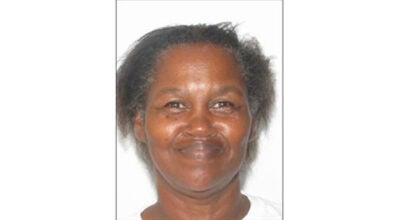Teachers speak out at school board meeting
Published 6:00 am Wednesday, July 7, 2021
|
Getting your Trinity Audio player ready...
|
Five teachers with Southampton County Public Schools (SCPS) spoke out during the public comments portion of the Southampton County School Board’s June meeting, expressing feelings of frustration and underappreciation in light of what was described at times as a lack of consideration, trust, recognition and compensation from the board.
The teacher complaints followed a year and a half of working amid the COVID-19 pandemic, which required significant sacrifices from educators.
Those speaking also generally made a point to highlight the teacher turnover in the division, and some described the relationship between teachers and the Southampton County school system in strong terms.
“It’s like an abusive relationship,” Southampton Middle School teacher April Griffith said. “There’s not but so much you can take before you have to walk away from it.”
Starting off the public comments from the teachers at the June 14 meeting was Laura Matthews, who noted she was the interim president of Southampton Education Association and the longest-serving teacher at Southampton High School, where she has served as a science teacher since 1988.
“A lot has changed in 33 years of teaching, but I would like to say the biggest has happened in the last 10 years,” she said. “We have always had pride to say Southampton County Public Schools is a family. Maybe it’s my age, but lately it doesn’t feel like that anymore. It seems our ‘parents,’ the school board, is not listening to its ‘kids,’ the teachers.”
She stated that the present teacher-turnover rate system-wide should begin telling the school board something, and she said it is not all about teacher pay.
“We fill out surveys and give suggestions, but in the end, it seems what is best for teachers and students seems to be ignored,” she said.
This same point was made by other teachers who spoke.
“Our authority and decisions are often undermined,” Southampton Middle School (SMS) teacher Kristina Parsons said. “The countless surveys and advice asked for is ignored, and we are not treated fairly.”
Griffith noted that many of the issues teachers had this past year could have been solved if only the central office and the board would have listened to the teachers.
“You trust us to teach the children of our county and to provide them with the best education possible, yet you do not trust us when it comes to solutions we try to provide,” she said. “We are the ones in the trenches doing the work and know what’s best for students as well as what will work and what won’t work. There have been multiple surveys that the central office has sent out this year asking for input from teachers, but unfortunately, any advice, solutions or information provided in those surveys fell on deaf ears.”
Matthews gave an example, highlighting how teachers at the high and middle schools wanted to do concurrent teaching — online and in-person teaching at the same time.
“But this was not done,” she said.
Multiple teachers highlighted how they had to operate in violation of the Virginia Department of Education’s code limiting how many classes they should teach per week.
“Since the acknowledgement of a Virginia Code violation, the climate at SMS has significantly changed,” Parsons said. “We currently teach 54 classes per week, which is an excess of 116%. The Virginia Code states that a teacher’s standard load shall be no more than 25 class periods per week. Middle school students should have no more than five class periods per day, and currently they have seven, which is excessive.”
Griffith went into detail when sharing how difficult this past year has been on educators, speaking from her perspective as a middle school teacher.
“As you well know, we spent the first half of the year teaching virtually, which meant we were teaching 32 classes a week,” she said.
Then a schedule change occurred as some students moved to in-person learning and others chose to stay virtual.
“During the third nine weeks, we taught 40 classes a week with barely any time for planning, lunch or bathroom breaks,” Parsons continued. “Sure, we had Friday with no classes, however those days were spent meeting one-on-one or in small groups with students, planning for the next week, grading all the work from the week, updating PowerSchool, answering messages from students and parents, contacting parents, if need be, and the list could go on.
“Another change in schedule came again with the fourth nine weeks and even less time for us to do the above-mentioned duties as we started teaching 54 classes a week.”
This included 12 classes a day, Monday through Thursday, and six classes on Friday.
“Monday through Thursday were extended workdays for us,” Parsons said. “Therefore, our compensation was that we would work from home on Fridays, and we could clock out at 11:30 a.m. after our virtual classes were over. This sounds great, but with even less time to do the duties mentioned above, most teachers continued to work full days on Fridays and even time on the weekends as well because there was just no time to get these things done with the numerous amount of classes that we have been teaching.”
Parsons said that because of the excessive number of classes, “I am unable to adequately reteach, remediate and address my students’ needs during the school day and often find myself contacting parents and students after school hours.”
Griffith told board members, “I think it goes without saying your teachers are beyond exhausted — mentally, physically and emotionally.”
The amount of work teachers were called to do in the last year and a half naturally drew comments from speakers about extra financial compensation, or the lack thereof.
The board did reveal later during the same meeting that it had been hard at work for some time, coming up with a plan for additional financial compensation for teachers and staff. The fruit of that labor was witnessed that night as the board voted to give pandemic stipends to all employees who have worked for the school division during the COVID-19 pandemic, which has impacted the 2019-20 and 2020-21 school years.
“The teachers spoke tonight about how hard they have worked during the pandemic, and there’s no denying that,” SCPS Superintendent Dr. Gwendolyn Shannon said during the meeting. “We agree with them wholeheartedly that they worked tirelessly and that sometimes we didn’t know what COVID-19 had to offer, but we still had our employees that were coming to work every day.”
Moments later she added, “So we are extremely proud of our staff, we do value our staff, and because of that, what we’ve decided to do was to give a pandemic stipend to our employees for working the varied and unusual conditions.”
The board also voted that night to institute the Employee Educational Incentive Plan.
The teachers’ comments came prior to these board actions that night, but they did mention the compensation efforts of other school divisions in the area, which may have still served as a point of contrast even after the board actions.
“Those who are currently teaching in the surrounding districts have received multiple bonuses this year to help offset the financial burden and havoc this pandemic has caused,” Parsons said.
The speakers also highlighted a lack of advance communication from division administration.
“We are often blindsided by information after it hits social media, and those decisions are often changed, several times,” Parsons said. “That doesn’t look good. It makes me feel inadequate.”
SMS teacher Alicia Johnston alluded to this lack of communication — as well as a lack of recognition that multiple teachers mentioned — as she shared her comments with the board. She gave a personal account of how the past year has impacted herself and her family, noting that through it all, she was there for her students and the school system.
“When the line between personal time and professional time became blurred by both parents and administrators from the top down, I was there,” she said. “When the schedules changed and I found out at the same time as the parents did, I was there, albeit with little to no information because of lack of timely communication.
“When a family member who lives at my house and that I helped care for was placed on hospice care, I was still there in the school,” she continued. “When promises were made to parents before knowing the viability and sustainability of said options at the expense of teachers, I was there.”
She said she filled out paperwork, sent messages and pleaded with each building-level administrator and human resources to be allowed to teach virtually until her vaccine was fully effective in order to protect her dying family member.
“My request went ignored, unanswered and denied until parents of my students interceded on my behalf,” she said. “When my family member’s health declined and I reached out about FMLA, I was told I had to wait until the person responsible for that was back in office. My family member died before that said date, and no one bothered to check up on me or my request, and still, I was there.”
She noted she was there through all the schedule changes, and she also said, “When Teacher Appreciation passed with no mention from the school board or superintendent, I was there, and I remember.”
She said she is here for her colleagues who are scared to speak for fear of recrimination and who are leaving and will continue to leave in droves.
Parsons mentioned earlier that she feared retaliation for speaking out.
Johnston said, “This year and the demands fully placed on the backs of teachers caused undue stress for my family, and my husband has said I could walk away because no job is worth the amount of heartache I have had for the pennies I am paid, but I am still here, and I am still standing. I do it for the kids, and they deserve better.”
She echoed the thoughts of some of the other teachers when she said the biggest learning loss students will face “is not how many minutes of math, science, reading or history they had but in the educators that will be lost if something doesn’t change.”
“My message is simply we must do better for the professionals that are in this district,” she said.
At the conclusion of the public comments period, Board Chair Dr. Deborah Goodwyn said, “On behalf of the entire Southampton County School Board, I want to thank all the individuals who addressed the board tonight.”





